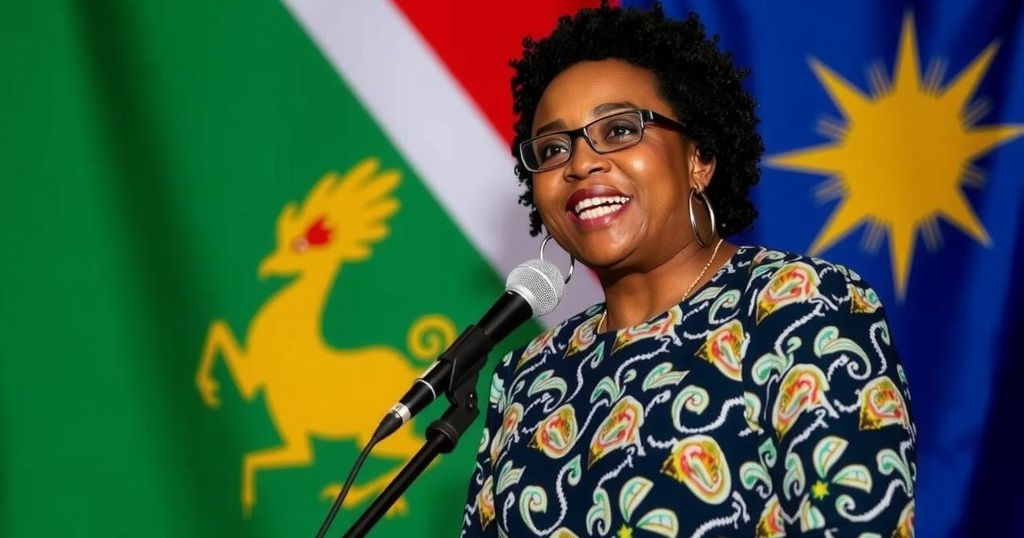Namibia’s Historic Presidential Election: A Chance for Female Leadership
Namibia’s presidential election on November 27, 2024, presents the potential for the first female leader, Netumbo Nandi-Ndaitwah. The SWAPO party, long in power, faces mounting challenges from rising unemployment and economic hardship. With approximately half the population registered to vote, the outcome could reshape Namibia’s political landscape as voter concerns shift towards women’s rights and economic conditions.
On November 27, 2024, Namibia conducted a significant presidential election where the potential for the first female president loomed large. Netumbo Nandi-Ndaitwah, the current vice president and representative of the ruling South West Africa People’s Organization (SWAPO), emerged as a prominent candidate. Her leadership in early voting results provided a strong starting point, yet she faced the challenges of rising discontent over unemployment and economic struggles, particularly among the youth.
SWAPO has maintained power since Namibia’s independence in 1990, but recent regional electoral outcomes have highlighted disillusionment with long-standing governance. Voter registration indicates that approximately 1.4 million Namibians, nearly half the nation’s population, sought to participate in this election, marking an imperative moment in the country’s political landscape.
Despite her significant background and promises of job creation, Nandi-Ndaitwah’s SWAPO faces stiff competition from other candidates, including Panduleni Itula, a previous independent opponent. Voter concerns about unemployment, women’s rights, and economic conditions were anticipated to dominate discussions. With over a dozen candidates vying for leadership, this election presents a historic opportunity for Namibians to reshape their governance.
Namibia, located on the southwestern coast of Africa, has a history marked by colonial rule and a struggle for independence spearheaded by SWAPO, which emerged as a key player in the nation’s politics post-1990. Currently, unemployment, especially among the youth, challenges the stability the SWAPO government has historically claimed. The recent shift in voter sentiment across southern Africa, with various elections resulting in significant changes in leadership, sets a backdrop for this presidential election as youth expectations and women’s rights gain traction in political discourse.
The election in Namibia stands as a landmark opportunity, particularly with the candidacy of Netumbo Nandi-Ndaitwah representing a potential shift towards female leadership in a region accustomed to male-dominated politics. As SWAPO contends with growing dissatisfaction among voters, the prevailing issues of unemployment and women’s rights may significantly influence Namibia’s future direction.
Original Source: apnews.com




Post Comment